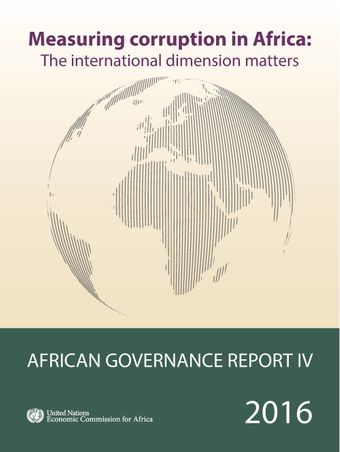Economic governance institutions, corruption and structural transformation

- Author: United Nations
- Main Title: African Governance Report IV - 2016 , pp 1-27
- Publication Date: April 2016
- DOI: https://doi.org/10.18356/099e559c-en
- Language: English
- Previous Chapter
- Table of Contents
- Next Chapter
The main challenge for African countries remains how to sustain positive socioeconomic outcomes that are resulting from the structural transformation processes. Three main conclusions emerge from this chapter. First, although a number of requisites are important to achieve structural transformation in African countries, good governance still holds a central place. Indeed, the Africa-owned Agenda 2063 clearly reaffirms that “Africa shall be a continent where democratic values, culture, practices, universal principles of human rights,…justice and the rule of law are entrenched” (African Union Commission, 2015). Second, in assessing the magnitude of corruption in Africa, far more attention should be given to decision-making processes and their implementation. The institutional perspective is critical, as highlighted in Agenda 2063, which states that “Africa shall also have capable institutions and transformative leadership in place at all levels. Corruption and impunity will be a thing of the past”. Third, in order to maintain its positive structural transformation trajectory, Africa needs to maintain good governance and build robust governance institutions, not only to combat corruption, but also to accelerate and sustain its efforts towards social and economic development.
-
From This Site
/content/books/9789210579056c009dcterms_title,dcterms_subject,pub_keyword-contentType:Journal -contentType:Contributor -contentType:Concept -contentType:Institution105

